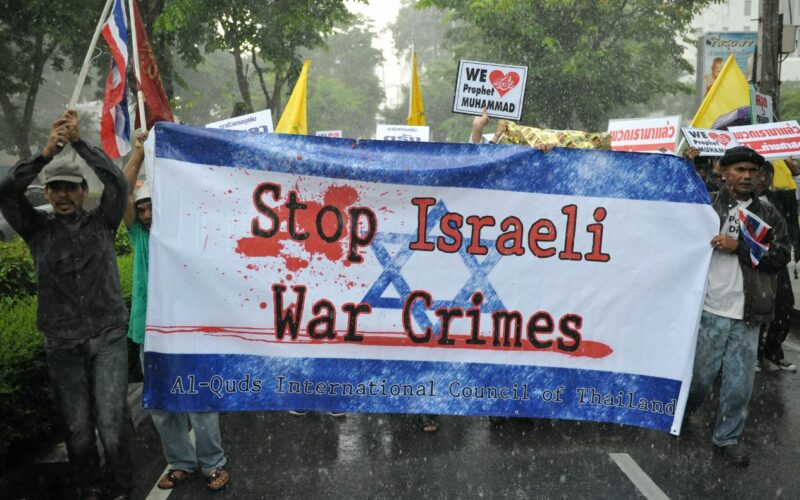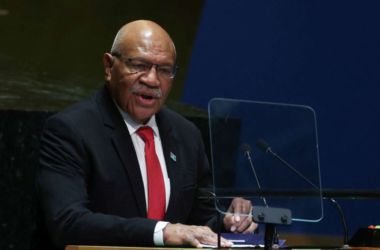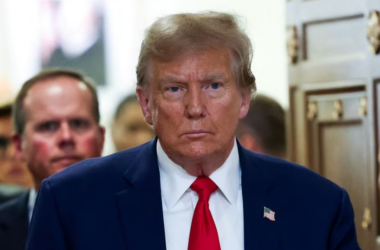The ongoing conflict between Israel and Palestine has reached a critical point, drawing widespread condemnation from the international community. Allegations of genocide and severe human rights abuses against Palestinians by Israeli forces have intensified global protests and calls for accountability.
The conflict, which has persisted for decades, saw a significant escalation recently, with reports of indiscriminate attacks on civilian populations in Gaza. Many in the global community are accusing Israel of committing acts that amount to genocide, citing the extensive loss of Palestinian lives and the destruction of essential infrastructure.
Critics argue that Israel’s actions demonstrate a blatant disregard for international law and human rights. They point to the heavy bombardment of densely populated areas, leading to significant civilian casualties, and the blockade of essential supplies, which has exacerbated the humanitarian crisis in Gaza. The destruction of homes, schools, and hospitals has left thousands of Palestinians without shelter, education, and medical care.
A recent UN investigation has accused Israel of committing severe war crimes in Gaza, including extermination, torture, and sexual violence. The findings come as global protests intensify in support of Palestine, condemning Israel’s actions and calling for international intervention.
The UN Commission of Inquiry (COI) revealed that from October 7 to December 31, following a Hamas-led attack on Israeli communities, Israel’s military operations in Gaza resulted in over 37,000 deaths. The COI identified multiple war crimes attributed to Israel during this period, such as extermination, gender persecution targeting Palestinian men and boys, murder, forcible transfer, torture, and inhuman treatment.
The report also documented instances where Israeli security forces enforced public stripping and nudity to humiliate the Palestinian community and underscore their subjugation. Navi Pillay, chair of the commission, emphasized the necessity of holding perpetrators accountable to break the cycle of violence and ensure adherence to international law. She called for an immediate cessation of Israeli military operations in Gaza, including the assault on Rafah.
The COI’s findings also pointed to widespread abuses by Palestinian armed groups, including torture, hostage-taking, and acts of gender-based and sexual violence against civilians and security personnel. Pillay urged Israel to stop rocket attacks and release all hostages, noting that taking hostages is a war crime.
Israel has refused to cooperate with the UN commission, accusing it of anti-Israel bias and obstructing its investigations. The COI reported that Israel prevented its investigators from accessing both Israel and the occupied Palestinian territories.
Humanitarian organizations have raised alarms over the dire situation in Gaza, warning of a high risk of famine due to blocked aid and destroyed infrastructure. The Famine Early Warning Systems Network (Fews Net) reported that Gaza might have experienced famine since April, a situation likely to continue unless there is a significant change in food assistance distribution.
UN Relief chief Martin Griffiths has called for the reopening of all border crossings to ensure safe and unimpeded delivery of aid. Palestinian NGOs have declared Gaza a “famine-stricken zone,” highlighting the severe impact of relentless bombardments by Israeli forces and restricted aid entry.
Global protests have erupted in response to these actions, with demonstrators taking to the streets in major cities around the world. From New York to London, from Paris to Sydney, people are rallying in support of the Palestinian state, calling for an immediate end to the violence and for the protection of human rights.
Prominent human rights organizations and political leaders have also joined the chorus of condemnation. They are urging the international community to take decisive action to hold Israel accountable for its actions. These organizations stress the importance of imposing sanctions and other measures to pressure Israel into complying with international standards of conduct.
Despite growing global pressure, Israel has remained largely indifferent to the condemnation. Its government continues to defend its military actions as necessary for national security, rejecting accusations of disproportionate use of force and human rights violations. This stance has only fueled further anger and frustration among the international community and protestors.
The United Nations and other international bodies are being urged to take more robust action to address the situation. There are calls for independent investigations into the alleged war crimes and for the international community to ensure that those responsible are held accountable.
As the conflict rages on, the humanitarian situation in Gaza continues to deteriorate. The lack of access to clean water, food, and medical supplies has created a dire situation for the Palestinian population. Aid organizations are struggling to provide relief, facing significant obstacles due to the ongoing blockade and hostilities.
The Israel-Palestine conflict remains a deeply divisive and complex issue, but the growing international outcry highlights the urgent need for a resolution that respects human rights and ensures the safety and dignity of all individuals involved. The global community’s increasing condemnation and the widespread protests signal a demand for justice and an end to the violence that has plagued the region for far too long.








